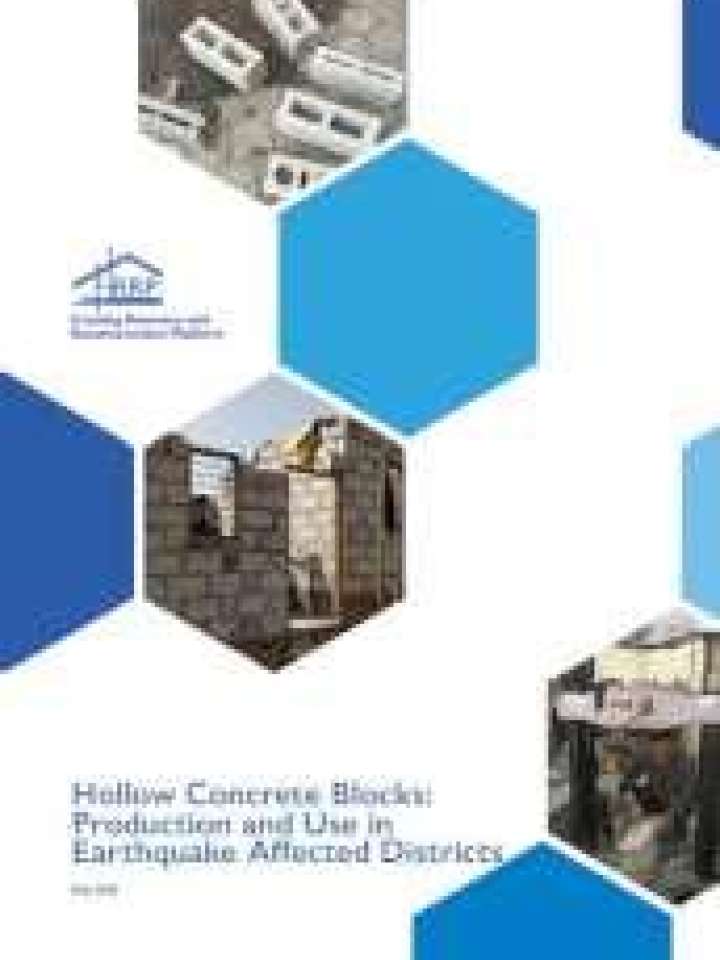Hollow concrete blocks: production and use in earthquake affected districts
This report presents the findings of two rounds of HRRP data collection on the production and use of Hollow Concrete Blocks (HCBs) across the districts affected by the 25 April 2015 Gorkha earthquake. The Nepal Standard: 119/2042 provides the minimum requirements for HCBs in construction in Nepal. HCBs are pre-cast cement concrete blocks with one or more large holes and consist of Portland cement, water, sand and aggregates. HCBs have many properties which make them a popular construction material for housing in earthquake zones, including that they have a high compressive strength if prepared properly, and their light weight, due to the cavity, decreases the dead load.
The objective of the two rounds of HRRP data collection was to analyse the production and use of Hollow Concrete Blocks (HCBs) across the earthquake affected districts. Interviews were conducted with 76 block producers across 11 districts, with compressive strength testing carried out on 110 blocks, and interviews with 37 households that have built with HCBs, across 5 districts.
The report concludes by suggesting a set of next steps which include continuing documentation of production and use of HCBs, developing a manual for HCB construction under the NRA Standardisation Committee for Reconstruction of Earthquake Resistant Houses, and developing and implementing support packages for HCB producers to improve quality of blocks.
